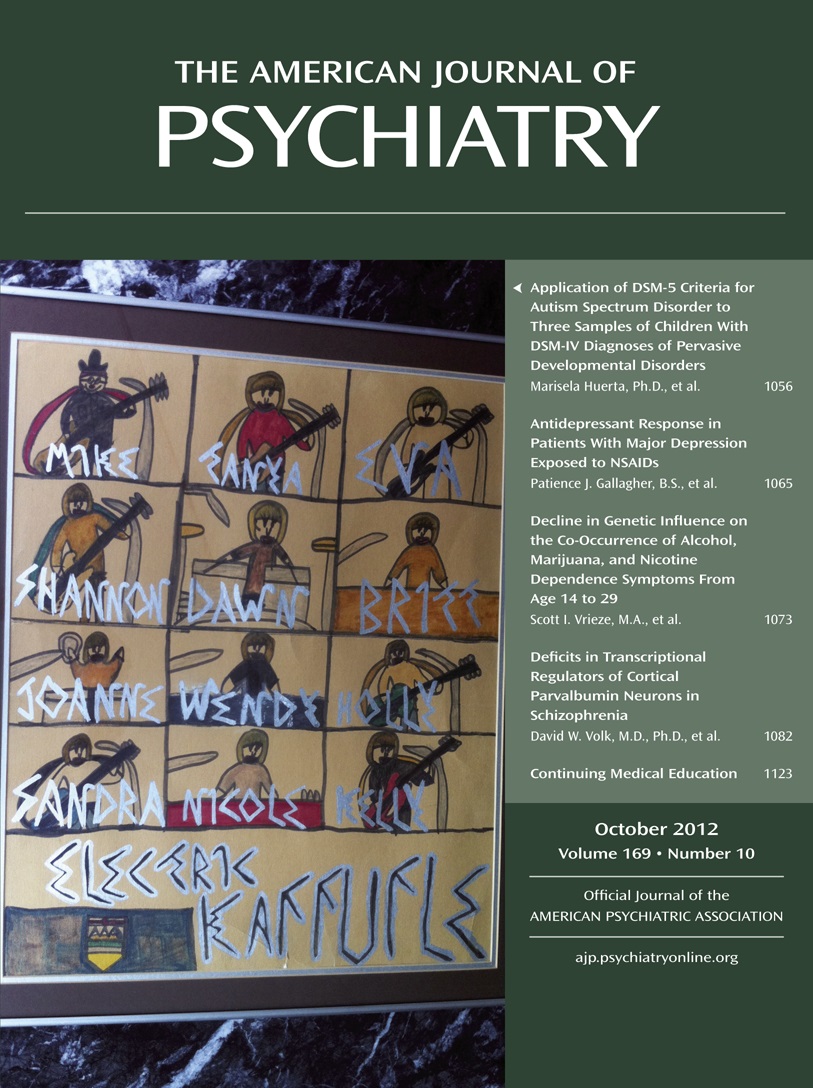Antidepressant Response in Patients With Major Depression Exposed to NSAIDs: A Pharmacovigilance Study
Abstract
Objective
It has been suggested that there is a mechanism by which nonsteroidal anti-inflammatory drugs (NSAIDs) may interfere with antidepressant response, and poorer outcomes among NSAID-treated patients were reported in the Sequenced Treatment Alternatives to Relieve Depression (STAR*D) study. To attempt to confirm this association in an independent population-based treatment cohort and explore potential confounding variables, the authors examined use of NSAIDs and related medications among 1,528 outpatients in a New England health care system.
Method
Treatment outcomes were classified using a validated machine learning tool applied to electronic medical records. Logistic regression was used to examine the association between medication exposure and treatment outcomes, adjusted for potential confounding variables. To further elucidate confounding and treatment specificity of the observed effects, data from the STAR*D study were reanalyzed.
Results
NSAID exposure was associated with a greater likelihood of depression classified as treatment resistant compared with depression classified as responsive to selective serotonin reuptake inhibitors (odds ratio=1.55, 95% CI=1.21–2.00). This association was apparent in the NSAIDs-only group but not in those using other agents with NSAID-like mechanisms (cyclooxygenase-2 inhibitors and salicylates). Inclusion of age, sex, ethnicity, and measures of comorbidity and health care utilization in regression models indicated confounding; association with outcome was no longer significant in fully adjusted models. Reanalysis of STAR*D results likewise identified an association in NSAIDs but not NSAID-like drugs, with more modest effects persisting after adjustment for potential confounding variables.
Conclusions
These results support an association between NSAID use and poorer antidepressant outcomes in major depressive disorder but indicate that some of the observed effect may be a result of confounding.



